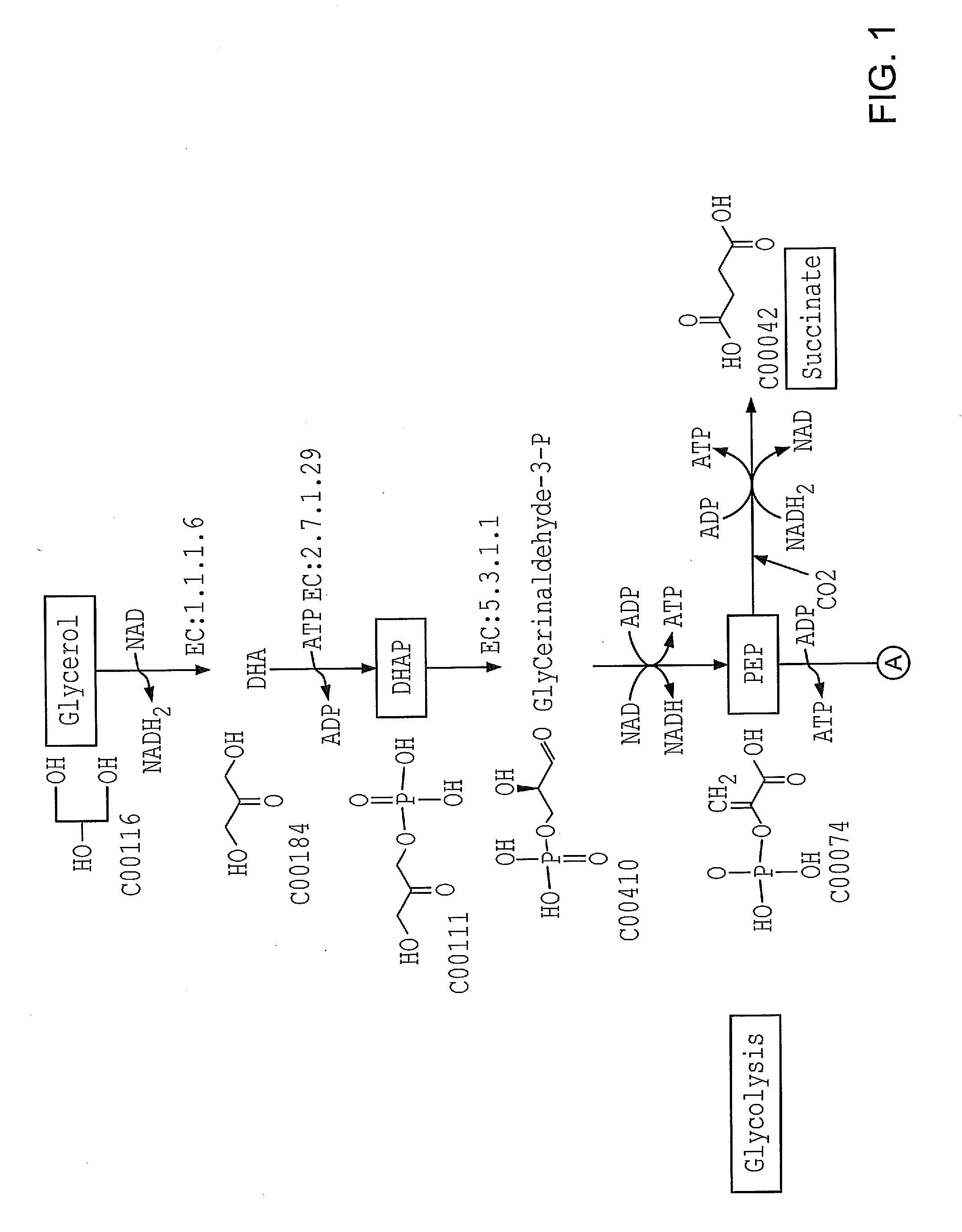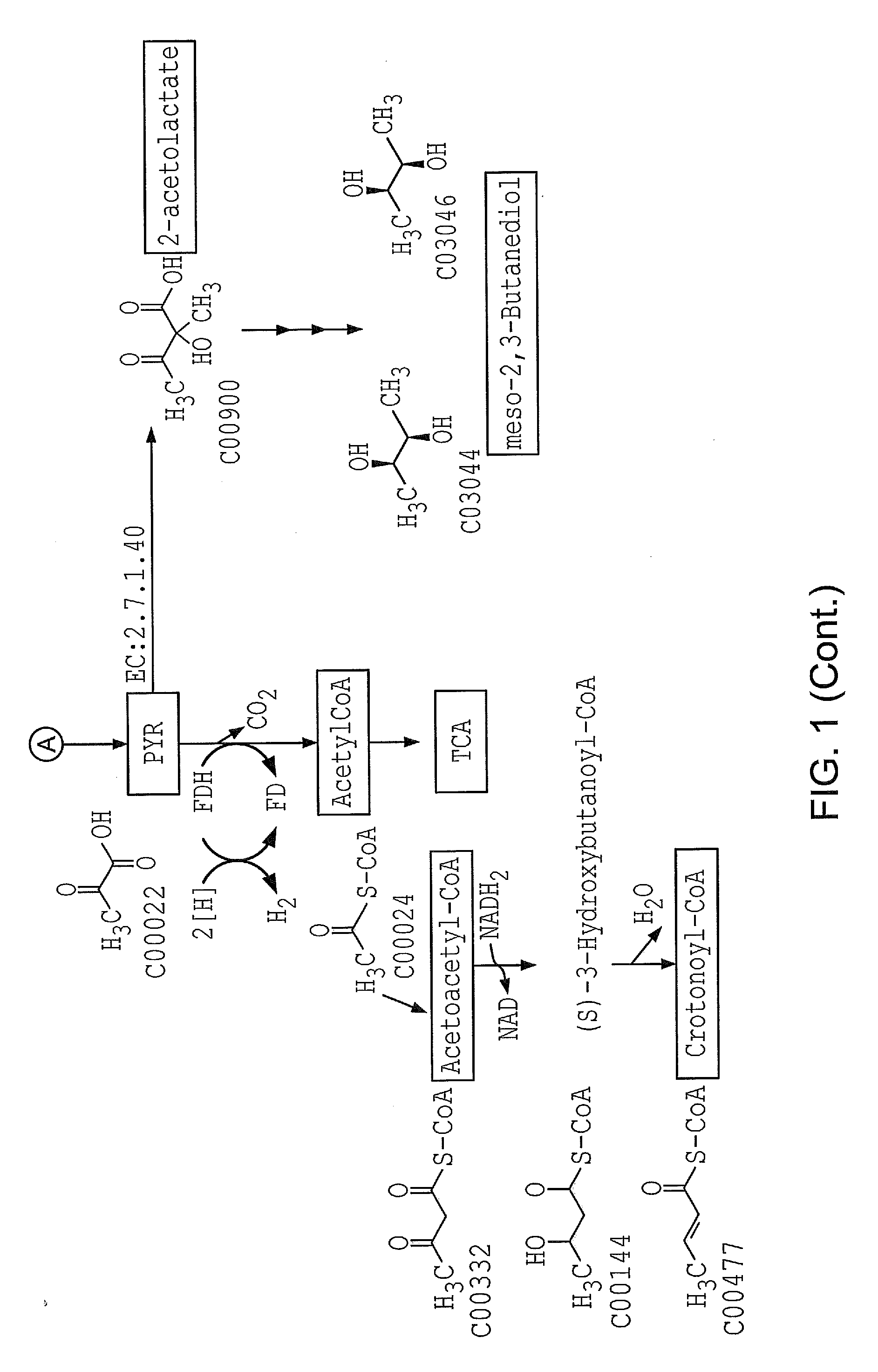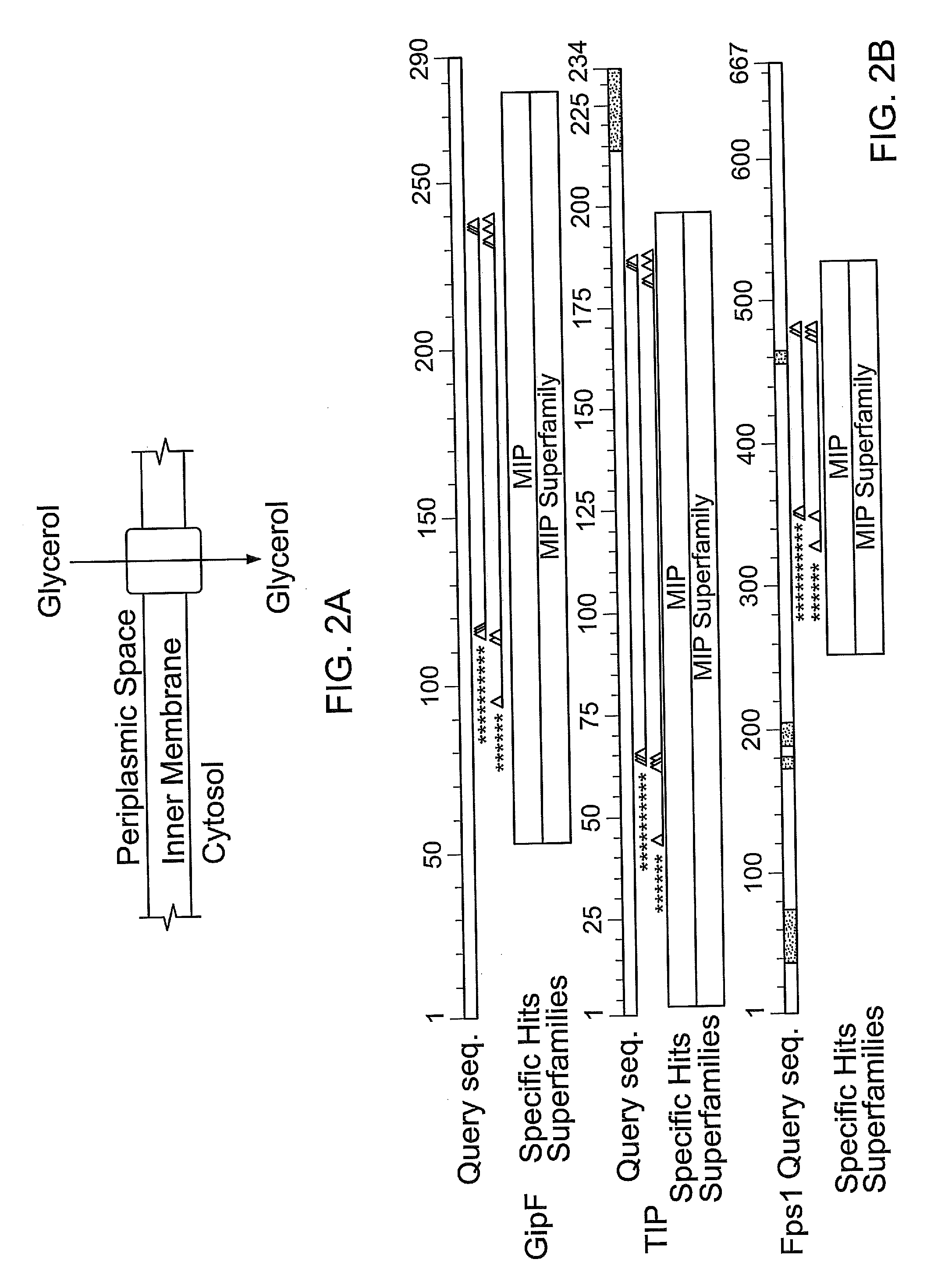Methods of making nylon intermediates from glycerol
a technology of glycerol and nylon, which is applied in the direction of lyases, peptide sources, transferases, etc., can solve the problem of limiting the ability to optimize the overall commercial efficiency of the production of desired products, and achieves the reduction of petrochemical-based raw materials and the minimisation of transport costs and rates
- Summary
- Abstract
- Description
- Claims
- Application Information
AI Technical Summary
Benefits of technology
Problems solved by technology
Method used
Image
Examples
Embodiment Construction
[0023]The method of the invention uses a whole cell organism which has been genetically modified to improve the uptake of glycerol and the conversion of glycerol to a desired product.
[0024]Another invention uses a microorganism to convert glycerol to a desired product wherein the microorganism has been genetically modified to introduce or improve its ability to metabolise glycerol.
[0025]Suitable techniques for identifying, isolating and modifying target enzymes through DNA recombination are known in the art.
1.1. Enzyme Catalysed Conversions
[0026]The methods of the present invention provide the means to convert glycerol into a range of intermediates which have use in the synthesis of nylons.
[0027]The core of the invention is the use of enzymes to divert metabolites produced in cells in the central pathways of metabolism (i.e. glycolysis and the TCA cycle) into the desired intermediates useful in the manufacture of nylon.
1.1.1. Glycerol Uptake
[0028]Central to the invention is an organ...
PUM
 Login to View More
Login to View More Abstract
Description
Claims
Application Information
 Login to View More
Login to View More - R&D
- Intellectual Property
- Life Sciences
- Materials
- Tech Scout
- Unparalleled Data Quality
- Higher Quality Content
- 60% Fewer Hallucinations
Browse by: Latest US Patents, China's latest patents, Technical Efficacy Thesaurus, Application Domain, Technology Topic, Popular Technical Reports.
© 2025 PatSnap. All rights reserved.Legal|Privacy policy|Modern Slavery Act Transparency Statement|Sitemap|About US| Contact US: help@patsnap.com



